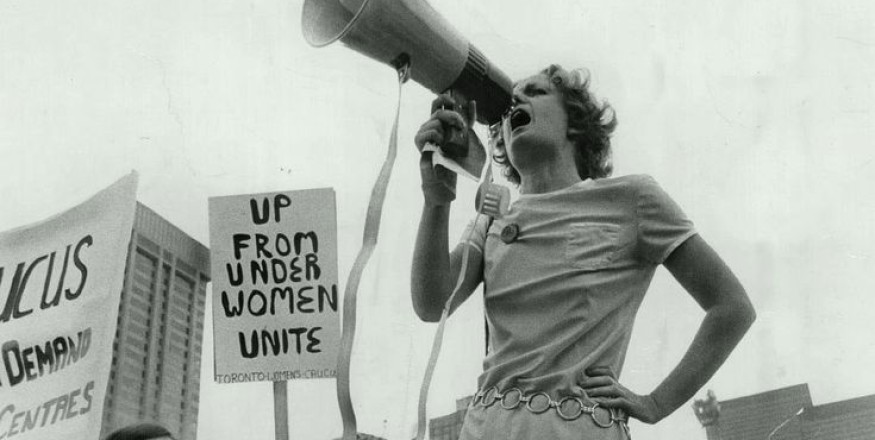 x
x
Abortion remains one of the most debated topics globally, stirring intense opinions on both sides. However, it’s shocking how some people continue to claim that “abortion is murder,” as if there’s no nuance, no complexity, and no context to consider. Let’s talk about what this argument really means and why it’s not only wrong but also often deeply hypocritical and, frankly, harmful.
Imagine a 13-year-old girl who has been raped and is now pregnant. Forcing her to carry that pregnancy to term is nothing short of cruelty. Pregnancy and childbirth can be incredibly traumatic for adult women—let alone a young girl who is not emotionally, mentally, or physically ready to be a mother. Does anyone really believe it’s “murder” if she chooses not to continue with the pregnancy? Is she really meant to have her entire life derailed and her trauma compounded by being forced to carry a child born from violence? Where’s the compassion in that perspective?
Then there’s the bizarre comparison some people make, equating a fetus to a full-grown baby. Let’s clarify what a fetus actually is. A fetus is the medical term for a developing human from roughly eight weeks after conception until birth. Before that, it’s called an embryo. A fetus is certainly a stage of human development, but it’s not the same as a baby that can survive on its own outside the womb. It’s dependent entirely on the woman carrying it. So no, it’s not “a baby”—it’s a fetus, something that’s developing with the potential to become a baby under the right circumstances. But to call a fetus a baby is, in many ways, to ignore both science and reality.
People who scream that “abortion is murder” often fall back on emotional arguments and appeal to what a fetus could become, not what it currently is. Sure, a fetus might grow into a baby someday, but that doesn’t mean it’s a baby now, nor does it mean that the pregnant person has an obligation to carry it to term. Are we to value what might be over the rights, health, and well-being of a person who already exists and is fully conscious? If every fetus were to be given the same rights as a born person, where would that leave the rights of the person carrying it? Why does the potential for life suddenly outweigh the actual life and autonomy of a person?
Consider this, too: we don’t call eating a chicken egg “murder.” A chicken egg is just that—an egg with the potential to become a chick under specific conditions, yet we don’t mourn every egg as a lost life. The comparison isn’t perfect, but it reveals the double standards people apply when it comes to reproductive rights. It’s not that those who oppose abortion truly care about “life” in all its forms; rather, they care about controlling one specific kind of life—the life of a woman and her choices.
It’s also incredibly troubling that even some women are against the right to choose. Some of these women say they’re motivated by religion, and while everyone is entitled to their beliefs, it’s problematic when they try to impose those beliefs on others. If you believe abortion is wrong for religious reasons, you absolutely have the right to make that decision for yourself. But religion is not an excuse to strip away another person’s rights or to dictate their choices. Many religious women still choose to support reproductive rights because they recognize the profound difference between personal beliefs and forcing those beliefs onto others, especially when it comes to something as intimate as pregnancy and childbearing.8Please respect copyright.PENANALCPq5AEkrd
When people call abortion “murder,” they make a mockery of real suffering and complex life situations. They simplify a deeply personal decision into black-and-white terms that ignore the nuanced reality of pregnancy, health, and autonomy. And when they vote to restrict abortion, they don’t actually eliminate abortion—they just make it less safe. History has shown that people will seek abortions regardless of legality. Denying safe access simply puts more people at risk, creating a world where only the privileged few have true control over their reproductive lives.
In some countries, abortion is not only illegal but punishable with prison time, even in cases of rape, health risks, or severe fetal abnormalities. This means that women who make the personal decision to terminate a pregnancy may face harsh criminal charges, treated as criminals for making choices about their own bodies. In places like El Salvador, for instance, women have been sentenced to decades in prison for undergoing an abortion, and some have even been wrongfully imprisoned after experiencing a miscarriage, accused of having induced it.
These laws don’t just strip away a woman’s right to choose—they put her health, freedom, and future at serious risk. In countries with strict abortion bans, women often turn to unsafe, illegal procedures, risking their lives because the law offers no safe alternatives. These extreme laws ignore the complexities of individual circumstances and punish women for circumstances beyond their control. They don’t protect life; instead, they create a culture of fear and punishment around a deeply personal healthcare decision.
Rather than supporting women, these laws end up criminalizing them, adding trauma and hardship to already challenging situations. The result is a society where women are treated as second-class citizens, denied control over their own bodies, and forced to live in fear of imprisonment for making choices about their own health and futures.
Finally, to anyone who insists on saying “abortion is murder,” I’d say this: until you’ve been in a position where that choice is a real one for you, maybe you should take a step back and listen. Listen to the voices of people who have made that choice, to people who fight every day for the right to control their own bodies, and to people who are forced into impossible situations. Abortion is not murder—it’s healthcare, it’s autonomy, and it’s a right.
8Please respect copyright.PENANAYytPr520tg





















